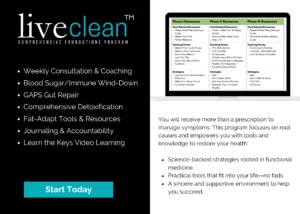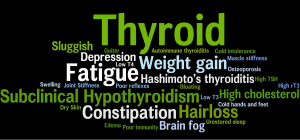Top 5 Red Flags to Watch Out For When Choosing a Functional Medicine Practice

Choosing the right functional medicine practice is a critical decision in your health journey. Functional medicine offers a holistic approach that seeks to address the root causes of illness rather than just treating symptoms. However, not all functional medicine practices are the same. This guide will help you identify five key red flags that can indicate whether a practice is the right fit for you.
[Red Flag #1: Lack of Personalization]
Beware of Generic Protocols
Functional medicine is all about personalized care. Each person is unique, and so should be their treatment plan. If a practice uses a one-size-fits-all approach, or relies heavily on generic protocols without tailoring them to your specific needs, this is a major red flag.
Tip: Ensure the practice takes the time to understand your health history, genetics, and lifestyle before designing your treatment plan.
[Red Flag #2: Overemphasis on Supplements]
Supplements shouldn’t be the main focus
While supplements can be a helpful part of a functional medicine plan, they should not be the primary focus. If a practice pushes excessive or unnecessary supplements without addressing root causes through diet, lifestyle changes, and other holistic methods, this could be a sign of misplaced priorities.
Tip: Look for a balanced approach that integrates supplements with other holistic practices.
[Red Flag #3: Lack of Communication and Follow-Up]
Communication is Key
Effective communication is crucial in functional medicine. If a practice fails to offer clear communication, regular follow-ups, or is difficult to reach, it can significantly hinder your progress.
Tip: Seek out practitioners who are approachable, responsive, and proactive in guiding you through your healing journey.
[Red Flag #4: Minimal Focus on Lifestyle Changes]
Lifestyle is the Foundation
Lifestyle changes, including diet, exercise, sleep, and stress management, are foundational in functional medicine. If a practice downplays the importance of these factors, it’s a red flag. A comprehensive functional medicine approach should empower you to make sustainable changes that support your overall well-being.
Tip: Ensure the practice emphasizes the importance of lifestyle in your treatment plan.
[Red Flag #5: Over Reliance on Expensive Tests]
Testing Should Be Justified
While testing can provide valuable insights, an overreliance on costly tests without clear justification is concerning. A reputable functional medicine practitioner should prioritize cost-effective testing and use the results to inform, not dominate, the treatment plan.
Tip: Ask about the necessity and benefits of tests before proceeding.
Finding the Right Fit
Your health is your most valuable asset. Choosing a functional medicine practice that values personalized care, communication, and a holistic approach over quick fixes is crucial. By being aware of these red flags, you can make an informed decision that supports your journey to optimal health.
More Posts

Mitochondria: Your Metabolism’s Hidden Power Source
Most people blame fatigue on stress or aging, but the real culprit often lies deep inside your cells. Your mitochondria — the engines of your metabolism — may be starving for the right signals. In this post, we explore what mitochondrial health really means and how to reignite your energy at the source.

The Systems Approach: Why Symptoms Are Only the Surface
Tired of chasing symptoms without getting answers? Discover how the Case Review uses a systems-based lens to reveal the root patterns behind fatigue, inflammation, and hormonal chaos—so you can finally heal from the inside out.

Why Heart Disease Is Still the #1 Killer—And What Labs Are Missing It
Despite medical advances, heart disease is still the #1 killer. The real problem? Most people with heart attacks have “normal” cholesterol. Discover the deeper lab markers that functional medicine uses to uncover silent cardiovascular risk—and what you can do about it.

The Top 5 Reasons a Traditional Diet Helps in the First 30–60 Days
A traditional diet stops the vicious cycle of blood sugar crashes, gut dysfunction, chronic inflammation, stress chemistry, and toxicity.

5 Key Benefits of Ketones That Go Far Deeper Than Energy
When we think of ketones, most of us picture the body in a fat-burning state, using ketones as a clean

5 Pillars of Thyroid Resiliency & Metabolic Balance
For too long, conventional medicine has approached thyroid dysfunction as a hormone problem, prescribing synthetic medication as the primary solution. But the truth is, your thyroid is not broken—it’s responding to deeper imbalances in your gut, immune system, metabolism, and nervous system.
The Live Clean Method is built on a root-cause approach, focusing on 5 essential pillars to restore thyroid function, balance hormones, and revitalize energy—without relying on band-aid solutions.

Why Sodium is Important on a Low-Carb or Ketogenic Diet
While the “news” may suggest limiting salt, this advice is usually based on high-carb, processed-food diets. On a low-carb or ketogenic diet, your body requires more sodium to stay balanced and healthy. Adding a moderate amount of sodium can help stabilize your blood pressure and prevent other symptoms like fatigue or dizziness.

Hypothyroidism: Recognizing the Symptoms and Differentiating Between Hashimoto’s and Glandular Hypothyroid
It’s essential to evaluate thyroid function with a full panel, including TSH, Free T3, Free T4, and thyroid antibodies.

The Top 3 Underlying Root Causes of PCOS and How to Address Them with Functional Medicine
By understanding the underlying factors contributing to PCOS, we can develop personalized strategies that promote healing and restore balance.

The Science of Autophagy: Cellular Self-Renewal and Longevity
Autophagy, from the Greek for “self-eating,” is a sophisticated cellular process that plays a critical role in maintaining homeostasis and promoting longevity.
